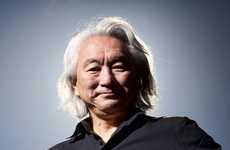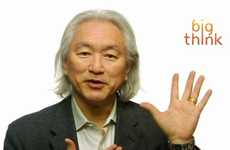
Need Inspiration?
Get inspired by 4,000+ keynote speaker videos & our founder, a top keynote speaker on innovation.
Moshe Szyf's DNA Talk Highlights the Impact of Infancy
Joey Haar — April 21, 2017 — Keynote Trends
References: youtube
Moshe Szyf's DNA talk elucidates a theory that has been gaining increased traction in scientific circles. For decades, science considered DNA a set and constant factor; living creatures received their genetic makeup from their parents, and that code would stay within them, embedded in their very cells, for the entirety of their lives. However, Szyf and others are beginning to see that DNA can be affected by outside factors, especially in infancy and early life.
One study on rats shows this effect in action. Mother rats lick their pups after birth, and pups that get licked more in infancy grow up to be less stressed. To see whether this characteristic is genetic, the study swapped mother rats to different litters, exchanging high-licking rats and low-licking rats, and it eventually found that it is the licking itself, not inherited genetics, that contributes to the stress factors.
Szyf, who is an epigeneticist, discovered that the mother rats were essentially reprogramming their pups' genetic expressions through licking. Extrapolating the idea to humans, he suggests that behaviors of human mothers can have a similar impact on the development of human babies in early life.
One study on rats shows this effect in action. Mother rats lick their pups after birth, and pups that get licked more in infancy grow up to be less stressed. To see whether this characteristic is genetic, the study swapped mother rats to different litters, exchanging high-licking rats and low-licking rats, and it eventually found that it is the licking itself, not inherited genetics, that contributes to the stress factors.
Szyf, who is an epigeneticist, discovered that the mother rats were essentially reprogramming their pups' genetic expressions through licking. Extrapolating the idea to humans, he suggests that behaviors of human mothers can have a similar impact on the development of human babies in early life.
3.8
Score
Popularity
Activity
Freshness
















